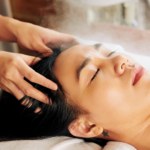We all know that stress is a part of life, but did you know it can have a big impact on your skin? If you’ve ever noticed a rash popping up when you’re feeling extra stressed, you’re not alone. Stress can cause all sorts of skin issues, including skin rashes from stress, acne breakouts, and even flare-ups of conditions like eczema and psoriasis. In this post, we’ll break down just how stress affects your skin, which skin conditions are often triggered by stress, and what you can do to help your skin stay healthy—even when life gets stressful.
If you’re looking for a quick discussion about skin rashes from stress, be sure to check out my video here:
🌿 Watch & Learn:
I’ve put together a quick, easy-to-follow video if you’d like a deeper dive into this topic.
✨ You’ll also find new weekly tips on stress-free skincare, hair wellness, and simple, science-backed beauty — don’t forget to subscribe here!
How Stress Affects Your Skin
When you’re stressed, your body goes into high gear, releasing hormones like cortisol and adrenaline. While these hormones are helpful in a moment of panic or danger, when they stick around because of chronic stress, they can wreak havoc on your skin.
Cortisol, often called the “stress hormone,” can cause your skin to overproduce oil, which leads to clogged pores and acne. It can also trigger inflammation, making existing conditions like eczema, psoriasis, hair loss, rosacea or worse. Unfortunately, stress can slow down the skin’s ability to heal itself, making any irritation or rash stick around longer than it normally would.
Skin Conditions Worsened by Stress
If you already have certain skin conditions, stress can make them worse. Here are some of the most common skin issues that flare up when stress levels rise:
Acne and Pimples from Stress
Stress and acne are a vicious cycle. When you’re stressed, your body pumps out more cortisol, which increases oil production. The extra oil can clog pores, leading to those frustrating breakouts—especially around your forehead, cheeks, and jawline. Many people notice that their acne flares up during stressful times, whether it’s a work deadline, family issues, or just life piling up.
Eczema and Psoriasis Flare-Ups
Both eczema and psoriasis are known for being triggered by stress. These conditions cause dry, itchy patches of skin that can become inflamed and painful. When stress takes over, it can cause your immune system to go haywire, leading to more flare-ups. Stress can also make the skin’s protective barrier weaker, making it more vulnerable to irritation.

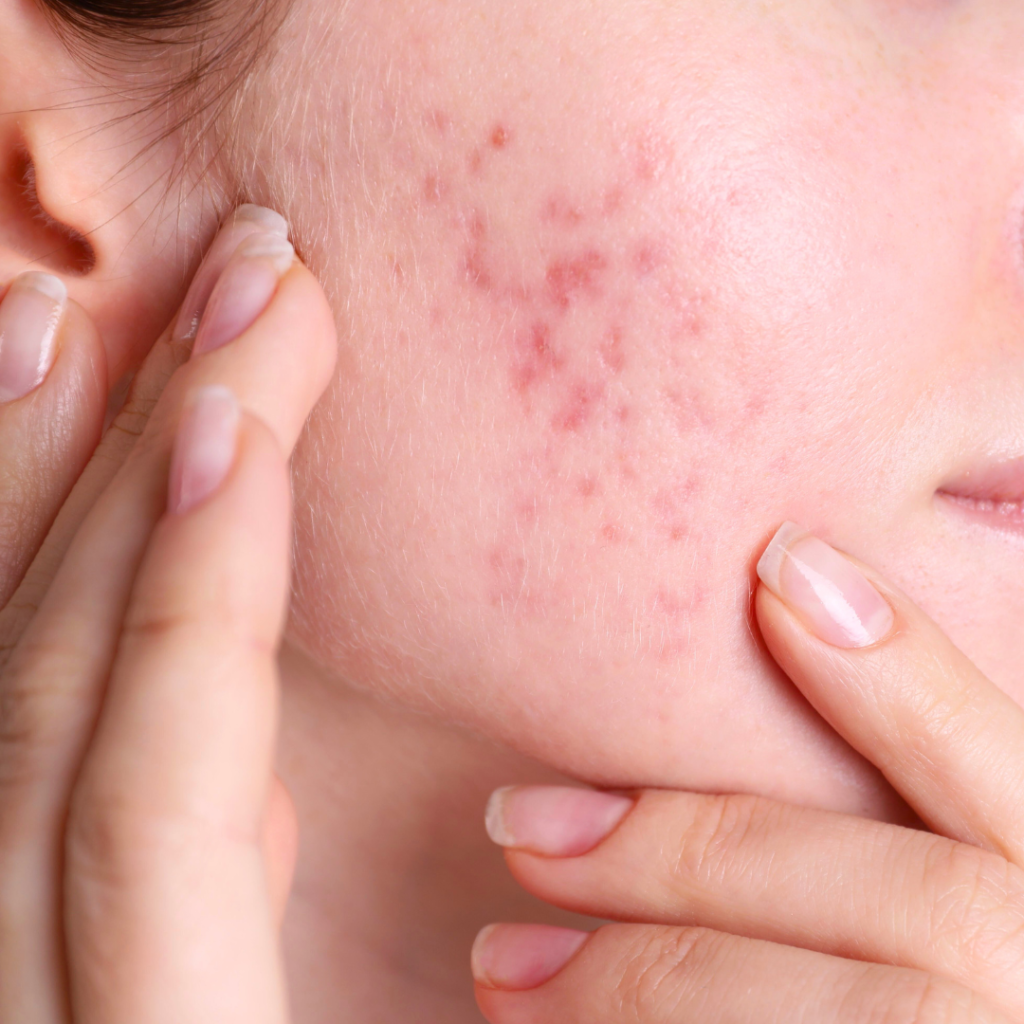
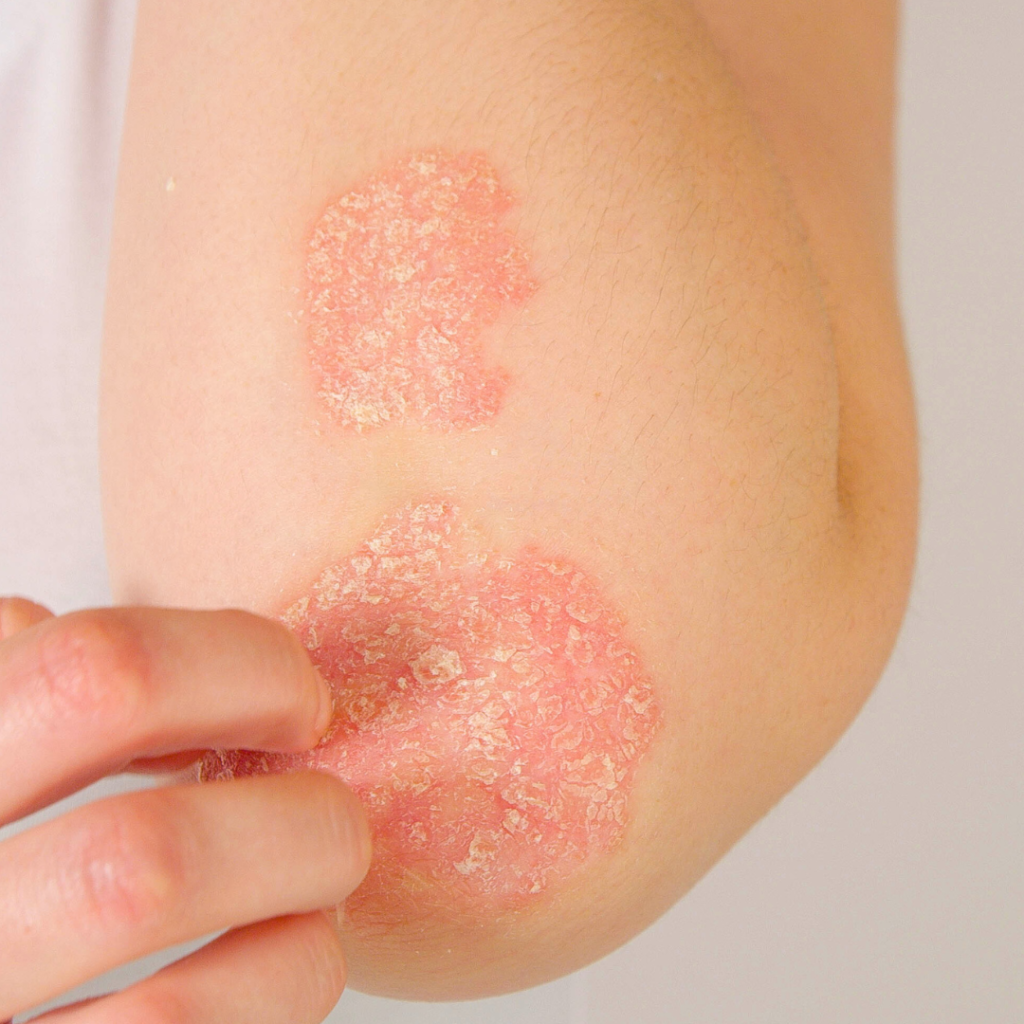
Skin Rash from Stress: What You Need to Know
A skin rash from stress can be super irritating. It often shows up as red, inflamed skin, especially on your face, neck, or chest. When you’re stressed, your body releases histamine, which causes itching and irritation. For some people, stress can even cause hives, or raised red welts on the skin. The rash can appear out of nowhere and may get worse the more stressed you are.
Rosacea and Stress-Induced Flare-Ups
If you have rosacea, stress might be your worst enemy. Rosacea is a condition that causes redness, visible blood vessels, and acne-like breakouts, usually on the face. Stress can make rosacea worse, leading to more redness and discomfort. For anyone dealing with this condition, managing stress is essential to keeping flare-ups under control.
When to Seek Help for Skin Issues from Stress
Many stress-related skin problems can be managed at home, but sometimes they get out of hand. If you notice any of the following, it might be time to see a dermatologist:
- A skin rash from stress that sticks around despite trying stress-reduction techniques.
- Acne breakouts that just won’t go away, no matter what you do.
- Flare-ups of eczema or psoriasis that are painful or widespread.
- Unexplained changes in your skin, like excessive dryness or redness.
A dermatologist can help you figure out what’s going on with your skin and recommend the best treatments.
Treatment for Stress-Related Skin Conditions
Taking care of your skin when stress is causing problems involves more than just topical treatments. You’ll need to address both the skin issues and the stress itself.
1. Skincare Treatments for Stress-Induced Acne and Rash
When stress is triggering acne, a gentle skincare routine is key. Look for non-comedogenic (won’t clog pores) products, and avoid harsh exfoliants that could irritate your skin. Calming ingredients like niacinamide or aloe vera can soothe irritated skin and reduce redness.
For a skin rash from stress, topical corticosteroids may be prescribed to reduce inflammation. Over-the-counter hydrocortisone creams can also help calm things down. Plus, using oatmeal baths and gentle moisturizers can soothe the itching and speed up the healing process.
2. Prescription Medications for Chronic Conditions
For those with chronic skin conditions like eczema, psoriasis, or rosacea, prescription medications are often needed. These could include stronger topical steroids, oral medications, or even biologic treatments for severe cases. Your dermatologist will help you find the right treatment plan for your situation.
3. Stress Management as Part of Treatment
As important as skincare treatments are, stress management plays a huge role in how your skin reacts. Reducing stress helps lower cortisol levels, which means less inflammation and oil production. Practices like mindfulness meditation, yoga, massage, and regular exercise are all great ways to reduce stress. Adaptogens like ashwagandha or rhodiola can also be beneficial for reducing stress and balancing the hormones that affect your skin.
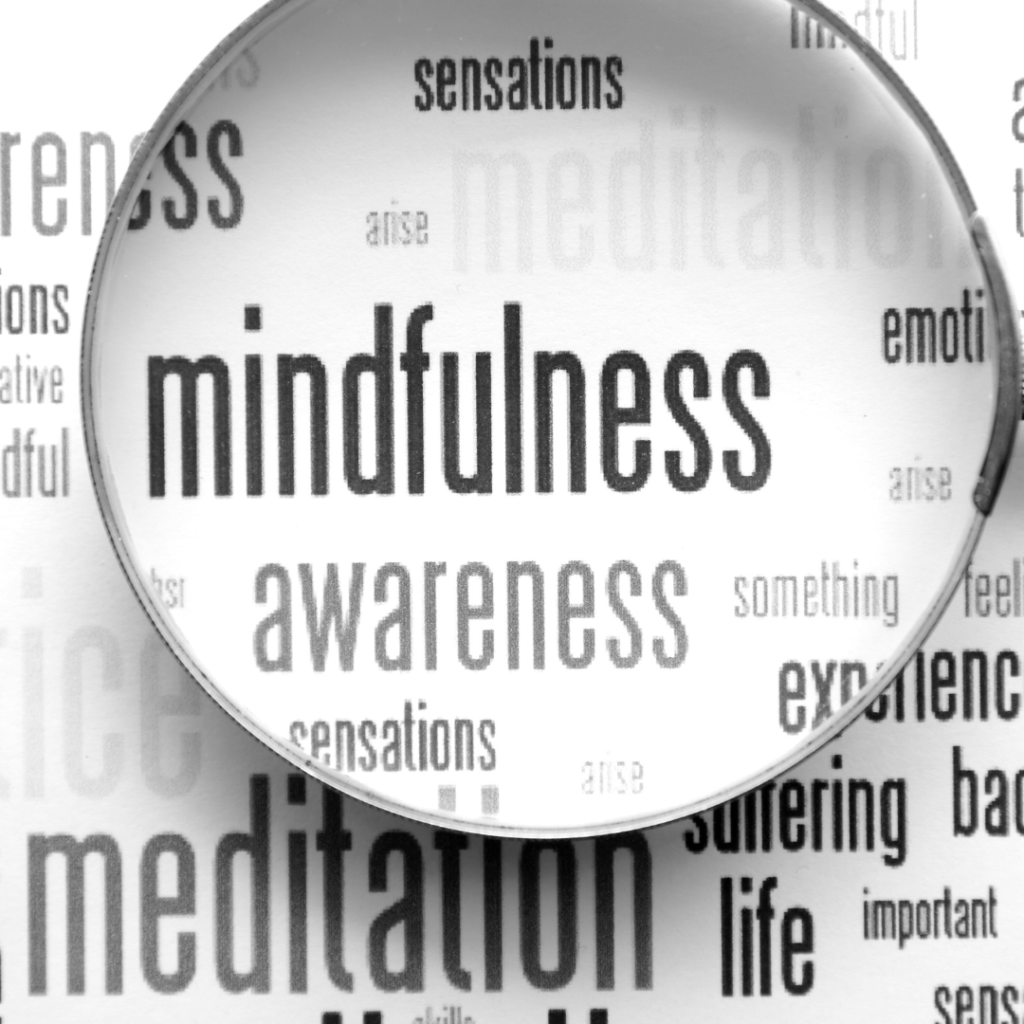
Prevention: How to Protect Your Skin from Stress
The best way to deal with stress-related skin issues is to prevent them from happening in the first place. Here are some tips to keep your skin healthy and stress-free:
1. Maintain a Healthy Diet for Stress and Skin Health
What you eat can play a big part in how your skin handles stress. Eating anti-inflammatory foods like:
- Omega-3-rich fish (salmon, mackerel, sardines)
- Fruits and vegetables (blueberries, spinach, kale)
- Nuts (almonds, walnuts, and seeds)
can help reduce inflammation and keep your skin clear. Avoiding too much processed food, caffeine, and dairy can also make a noticeable difference.
2. Practice Stress-Reduction Techniques
We all need to relax sometimes. Incorporating stress-reducing activities into your day, like deep-breathing exercises, regular exercise, and making time for hobbies you enjoy, can help keep your cortisol levels in check. Also, don’t forget about sleep hygiene—getting enough rest is essential for overall health and skin health.

3. Skincare Routine to Protect Your Skin from Stress
A consistent skincare routine is a must if you want to protect your skin from stress. Use gentle, hydrating products that won’t strip your skin of its natural oils. A good skincare routine with a cleanser, moisturizer, and sunscreen will help maintain your skin’s protective barrier and reduce irritation. Ingredients like green tea, niacinamide, and hyaluronic acid are great for calming stressed skin.
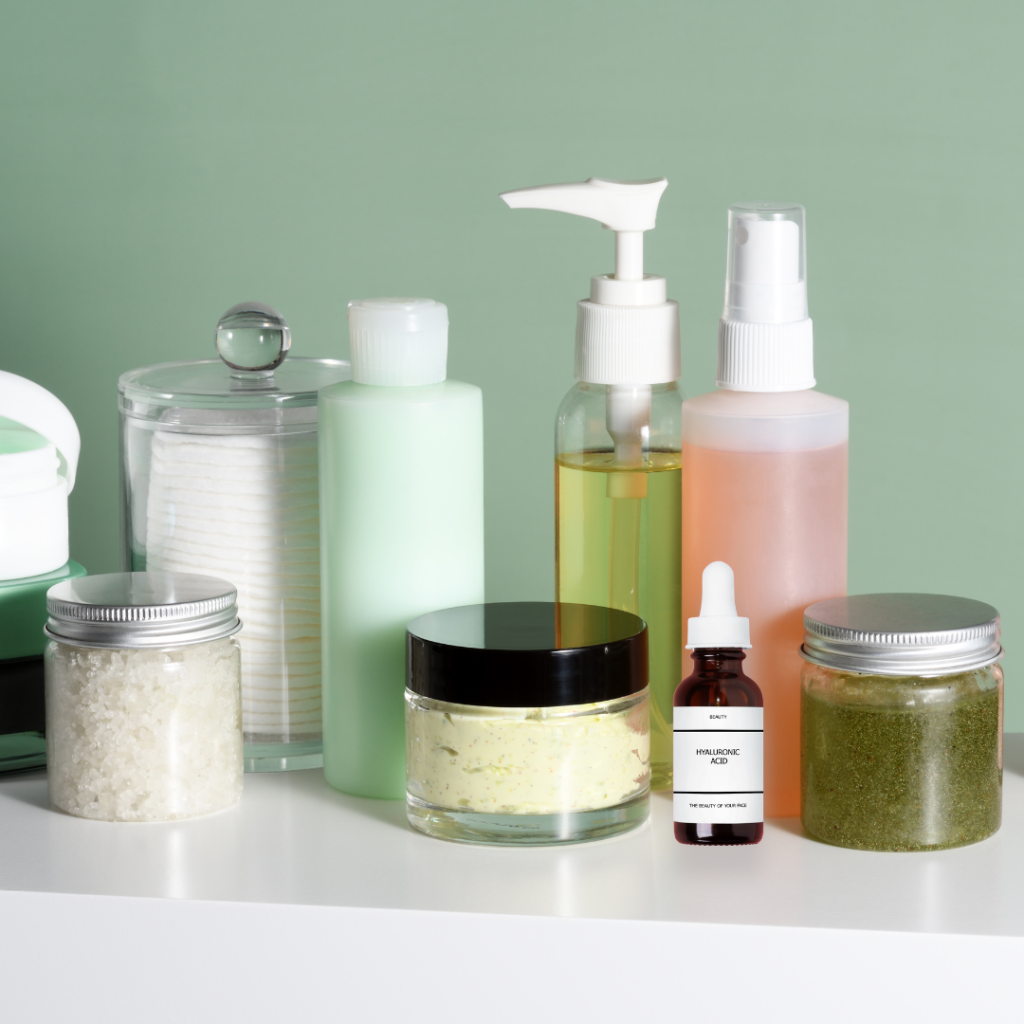
Frequently Asked Questions About Skin Rash from Stress
Can stress cause a rash?
Yes, stress can cause a skin rash from stress. When you’re stressed, your body releases histamine, which can cause itching and irritation. This can lead to hives or other types of rashes, especially if you have sensitive skin.
How do I treat a rash caused by stress?
To treat a skin rash from stress, try using hydrocortisone cream or soothing products like aloe vera or oatmeal baths. If the rash doesn’t improve, it’s best to see a dermatologist for further treatment.
Can stress worsen acne or rosacea?
Yes, stress can make both acne and rosacea worse. Stress triggers cortisol, which increases oil production and can cause inflammation. Managing stress with relaxation techniques and using the right skincare can help reduce flare-ups.
When should I seek help for skin issues caused by stress?
If your skin rash from stress or acne doesn’t improve after trying home remedies or stress-reduction techniques, or if your symptoms become severe, it’s time to seek help from a dermatologist. They can provide a treatment plan tailored to your needs.
Stay in the Know. Subscribe.






